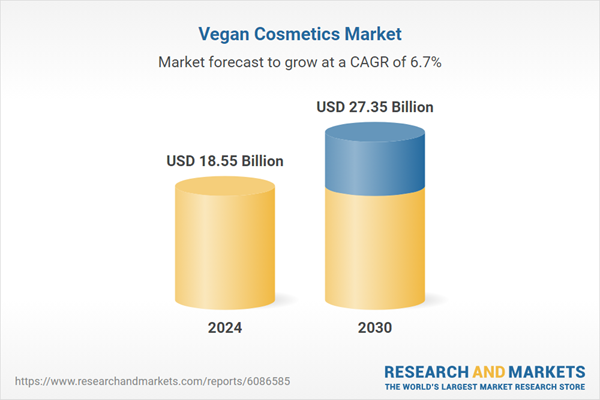Speak directly to the analyst to clarify any post sales queries you may have.
10% Free customizationThis report comes with 10% free customization, enabling you to add data that meets your specific business needs.
Key Market Drivers
Rising Awareness About Animal Welfare and Ethical Consumerism
Growing consumer concern about animal welfare is a major driver of the global vegan cosmetics market. As more individuals become informed about animal testing and the use of animal-derived ingredients in conventional beauty products, there is a clear shift toward cruelty-free and vegan choices. Vegan cosmetics, which exclude all animal-based components such as lanolin, beeswax, collagen, and carmine, are increasingly viewed as ethical and sustainable alternatives. This movement is gaining strong traction among Millennials and Gen Z, who prioritize values like compassion and environmental responsibility in their purchasing decisions. Influential campaigns by animal rights groups and the growing impact of social media content highlighting cruelty-free practices have accelerated this shift. As a result, demand for vegan cosmetics continues to rise across multiple segments, including skincare, makeup, haircare, and personal care products.Key Market Challenges
High Cost of Production and Limited Price Accessibility
A key challenge facing the global vegan cosmetics market is the high cost associated with developing and producing these products. Vegan formulations often rely on plant-based or synthetic substitutes for animal-derived ingredients, many of which are more costly due to complex sourcing and processing requirements. In addition, expenses tied to cruelty-free testing methods, sustainable packaging, and third-party certifications add to overall production costs.These factors typically lead to higher retail prices, limiting access in cost-sensitive markets such as parts of Asia, Africa, and Latin America. While consumers in developed regions may accept a premium for ethical products, mainstream adoption globally is hindered by affordability concerns. Smaller brands also struggle to achieve scale while maintaining ethical standards. Addressing these cost challenges is critical to expanding market reach and ensuring inclusive access to vegan cosmetics.
Key Market Trends
Mainstream Adoption by Established Beauty Brands
A major trend reshaping the global vegan cosmetics landscape is the increased participation of established beauty companies in the vegan segment. Renowned brands such as L’Oréal, Estée Lauder, Unilever, and Procter & Gamble are launching dedicated vegan lines and reformulating existing products to meet growing consumer demand for cruelty-free and plant-based alternatives.For instance, Garnier now offers certified vegan skincare products, and Unilever’s Love Beauty and Planet emphasizes clean, vegan-friendly formulations. These companies leverage their global distribution networks and R&D capabilities to bring vegan products into the mainstream, enhancing accessibility and credibility. The move by large corporations to embrace vegan cosmetics signifies a broader shift, positioning ethical beauty as a standard in modern personal care rather than a niche. This trend is accelerating market growth and establishing vegan offerings as a permanent fixture in the global beauty industry.
Key Players Profiled in this Vegan Cosmetics Market Report
- MuLondon
- Loreal SA
- Beauty Without Cruelty
- Levlad Inc (Nature's Gate)
- MO MI BEAUTY
- e.l.f. Beauty, Inc.
- Cottage Holdco B.V. (COTY Company)
- Gabriel Cosmetics Inc.
- Groupe Rocher
- Pacifica Beauty
Report Scope:
In this report, the Global Vegan Cosmetics Market has been segmented into the following categories, in addition to the industry trends which have also been detailed below:Vegan Cosmetics Market, by Product Type:
- Skin Care
- Hair Care
- Makeup
- Others
Vegan Cosmetics Market, by Distribution Channel:
- Supermarkets/Hypermarkets
- Departmental Stores
- Online
- Others
Vegan Cosmetics Market, by Region:
- North America
- United States
- Canada
- Mexico
- Europe
- France
- United Kingdom
- Italy
- Germany
- Spain
- Asia-Pacific
- China
- Japan
- India
- South Korea
- Vietnam
- South America
- Argentina
- Colombia
- Brazil
- Middle East & Africa
- South Africa
- Saudi Arabia
- UAE
- Turkey
Competitive Landscape
Company Profiles: Detailed analysis of the major companies present in the Global Vegan Cosmetics Market.Available Customizations:
With the given market data, the publisher offers customizations according to a company's specific needs. The following customization options are available for the report.Company Information
- Detailed analysis and profiling of additional market players (up to five).
This product will be delivered within 1-3 business days.
Table of Contents
Companies Mentioned
The leading companies profiled in this Vegan Cosmetics market report include:- MuLondon
- Loreal SA
- Beauty Without Cruelty
- Levlad Inc (Nature's Gat)
- MO MI BEAUTY
- e.l.f. Beauty, Inc.
- Cottage Holdco B.V. (COTY Company)
- Gabriel Cosmetics Inc.
- Groupe Rocher
- Pacifica Beauty
Table Information
| Report Attribute | Details |
|---|---|
| No. of Pages | 188 |
| Published | May 2025 |
| Forecast Period | 2024 - 2030 |
| Estimated Market Value ( USD | $ 18.55 Billion |
| Forecasted Market Value ( USD | $ 27.35 Billion |
| Compound Annual Growth Rate | 6.6% |
| Regions Covered | Global |
| No. of Companies Mentioned | 11 |









